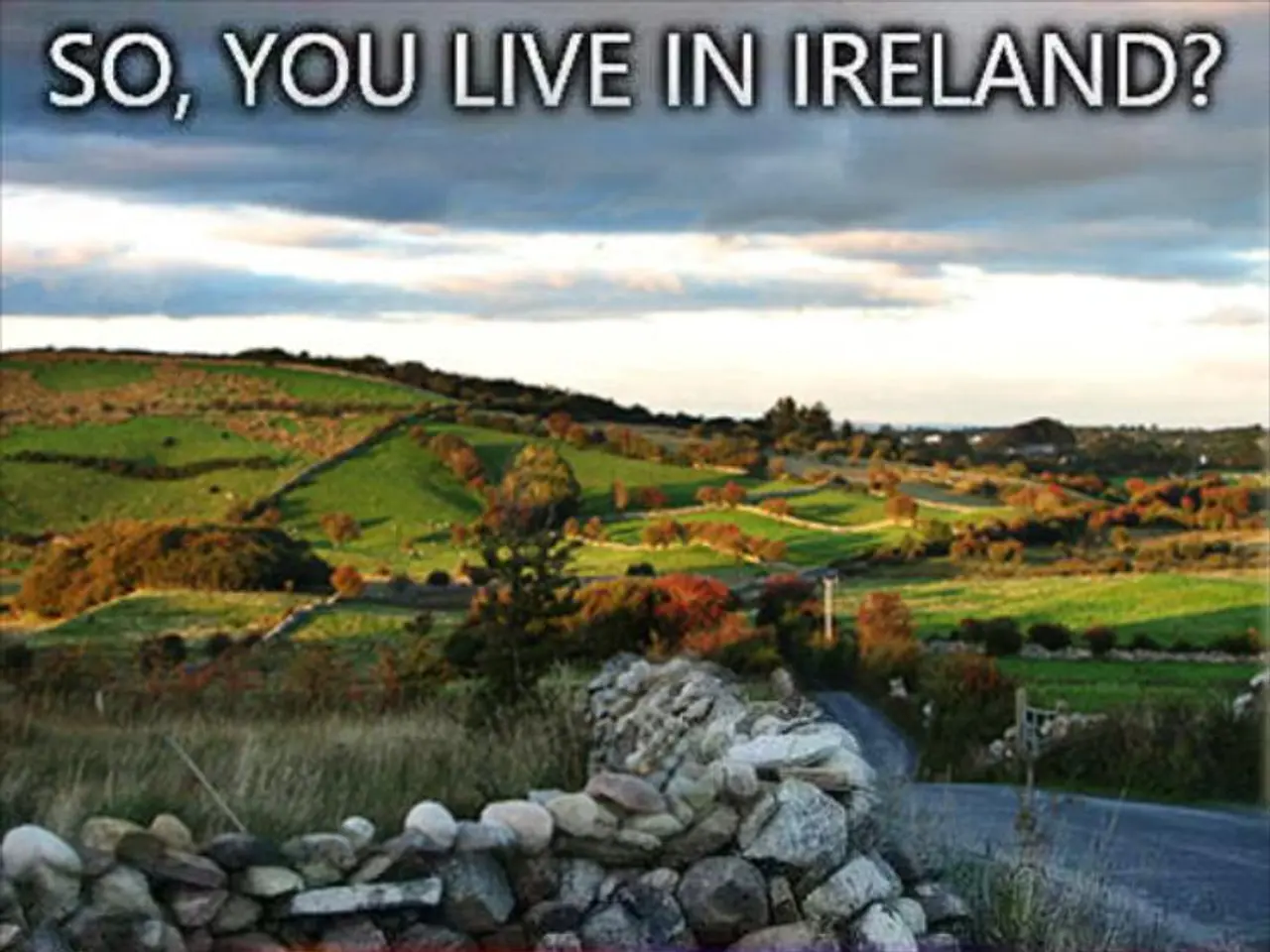Eu proposes adjustable climate target for 2040 amid extreme heatwave conditions
The European Union (EU) is pushing forward with its ambitious plan to reach net-zero emissions by 2050, a target that includes a binding emissions reduction of at least 55% by 2030. However, a recent proposal has sparked debate, with concerns that the use of international carbon credits could undermine the EU’s climate ambitions and domestic emissions reductions.
The proposal allows EU member states to purchase international carbon credits on green projects in third countries from 2036 onward, using them to offset up to 3% of the benchmark 1990 emissions. This move has been met with criticism from environmental groups, who fear that relying on international offsets could divert resources from transforming the EU’s own economy.
Organisations like WWF and Greenpeace have expressed concern, with the latter describing the proposal as "dodgy accounting and offshore carbon laundering." Critics argue that allowing international carbon credits might act as a "license to pollute," enabling wealthier EU nations to avoid making the necessary domestic emissions cuts by outsourcing a portion of their climate responsibility to projects outside the EU.
However, the European Commission frames the proposal as a pragmatic and flexible pathway that balances the green agenda with economic competitiveness. The Commission aims to provide predictability to businesses and investors in Europe’s clean energy transition, with the new target expected to give certainty, strengthen industrial leadership, and increase Europe’s energy security.
The controversy is a tension between maintaining stringent, domestic emissions reductions within the EU and leveraging international carbon markets as part of a flexible, cost-effective approach to meet ambitious climate targets. Opponents fear it could weaken EU climate leadership and delay real transformation, while proponents emphasize the potential for global collaboration and mobilization of finance to vulnerable regions.
Meanwhile, the EU has already made significant strides in reducing its climate-warming emissions. As of May, the EU had already cut emissions by 37%. This progress, however, has not been without cost, with concerns about the impacts of the green transition on industrial growth and livelihoods.
The historic heat wave currently sweeping across Europe has further highlighted the urgency of climate action. The heatwave has caused deaths in France and Spain, particularly affecting older people and small children. Agnes Pannier-Runacher, France’s ecology transition minister, described the current heat wave as unprecedented.
Extreme heat warnings are in force in many regions, including Frankfurt am Main, Paris, and Venice. Fires have broken out in Turkey, Spain, and France, with 400 hectares of land destroyed in France. The number and intensity of heatwaves is continuing to increase due to human-caused climate change.
The EU’s climate plans have raised concerns about the costs of the green transition and its impact on industries and livelihoods. The European Scientific Advisory Board on Climate Change has advised against outsourcing part of the bloc’s climate efforts, stating it risks diverting resources from domestic investments and could undermine environmental integrity.
Climate activists have criticized a flexibility clause in the proposal, claiming it was included due to pressure from member states like France and Germany, along with major industry lobbyists, at the cost of reduced investments at home. Mathieu Mal, a climate and agriculture expert, has described the 3% flexibility clause as a "bad idea" due to the need for investments within the EU for energy transformation.
In conclusion, the EU's proposed use of international carbon credits is a contentious issue, with environmental groups and experts raising concerns about its potential impact on the EU's climate ambitions and domestic emissions reductions. The debate underscores the complex challenges facing the EU as it strives to meet its ambitious climate targets while balancing economic considerations and ensuring a just transition for its citizens.
[1] European Commission, (2021), Proposal for a Regulation of the European Parliament and of the Council on the establishment of a market stability reserve for the EU Emissions Trading System. [2] European Commission, (2021), Communication on the EU's 2030 Climate Target Plan. [3] European Scientific Advisory Board on Climate Change, (2021), Opinion on the EU's 2030 Climate Target Plan. [4] WWF, (2021), WWF's position on the EU's Carbon Border Adjustment Mechanism. [5] Greenpeace, (2021), Greenpeace's position on the EU's Carbon Border Adjustment Mechanism.
- The European Union's (EU) proposal to purchase international carbon credits is generating debate, with concerns that it could undermine the EU's climate ambitions and domestic emissions reductions.
- Critics, including environmental groups like WWF and Greenpeace, argue that relying on international offsets could divert resources from transforming the EU’s own economy and act as a "license to pollute."
- The European Commission, however, argues that the proposal offers a pragmatic and flexible pathway, balancing the green agenda with economic competitiveness.
- The controversy lies in the tension between maintaining stringent, domestic emissions reductions within the EU and leveraging international carbon markets to meet ambitious climate targets.
- The EU has already made significant strides in reducing its climate-warming emissions, but concerns about the impacts of the green transition on industrial growth and livelihoods persist.
- The EU's climate plans and the proposed use of international carbon credits have sparked discussions among environmental experts, climate activists, and politics, leading to a call for careful consideration to ensure a just transition for EU citizens.








